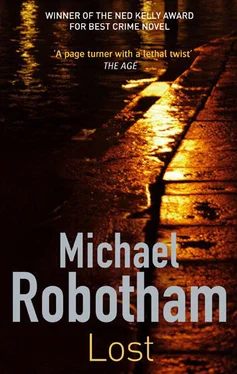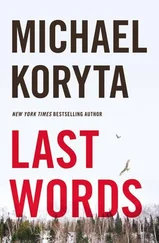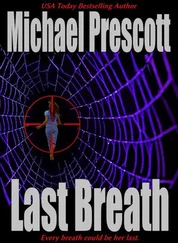“You have a chance to end it.”
“You mistake me for someone who desires peace and harmony. On the contrary, what I desire is revenge.”
He moves to stand. The negotiation is over.
I feel my temper rising. “For Christ's sake, Aleksei, I'm trying to find Mickey. She's your family. Don't you want to know what happened?”
“I know what happened, Inspector. She's dead. She died three years ago. And let me tell you something about families—they're overrated. They're a weakness. They leave you or get taken from you or they disappoint you. Families are a liability.”
“Is that why you got rid of Sacha?”
He ignores me, pushing open the heavy door. We're outside now. I can hear myself think. Aleksei is still talking.
“You say to trust you. You say trust the deal. You have no idea, do you? Not a clue. You're like the three wise monkeys all rolled into one. Now let me make a deal with you—hypothetically speaking, of course. You return the diamonds to me and then step back. Let people work things out for themselves. Market forces, you see, capitalism, supply and demand, these are the things I understand. People reap what they sow.”
“People like Gerry Brandt?” With a flick of my wrist, I grip his forearm. He doesn't flinch. “Leave Kirsten alone.”
His eyes are narrow and dark, with something toxic behind them. He thinks I'm some dumb plod, barely off the beat, whose idea of subtle interrogation is a nightstick and a strong right arm. That's how I'm acting.
“You know what a Heffalump is?” I ask.
“Winnie-the-Pooh's friend.”
“No, you're thinking of Piglet. Heffalumps and Woozles are the nightmare creatures that Pooh Bear dreams about. He's afraid they're going to steal his honey. Nobody can see them except Pooh. That's who you remind me of.”
“A Heffalump?”
“No. Pooh Bear. You think the world is full of people who want to steal from you.”
The sky is gray and the evening air damp and heavy. Away from the throb of the engines my headache finds its own rhythm. Aleksei walks me to the gangway. The Russian is close behind him, swinging his left arm a little wider because of his holster.
“Have you ever thought of getting a normal job?” I ask.
Aleksei contemplates this. “Maybe we should both do something new.”
Then it dawns on me that he's right, we're not so different. We both screwed up our relationships and lost our children. And we're too old to do anything else. I have spent two-thirds of my life putting criminals away, most of them small-timers and lowlifes. Aleksei was what I was working toward. My ambition. He's the reason I did the job.
As I step onto the gangway the Russian follows, two paces behind. The rope handrails are looped between brass posts. He closes the last step and I feel the warm metal of the gun brush the short hairs at the base of my skull.
Aleksei explains: “My employee will go with you and collect the diamonds.”
In the same instant I fall over the side, plunging toward the water. Reaching up in midair, I grab onto the rope railing and hang on as my body swings through an arc, tipping the gangway on its side. The Russian plunges past me.
Swinging my good leg onto the dock, I climb to my feet. Aleksei is watching the Russian flailing his arms as he tries to stay afloat.
“I don't think he can swim,” I point out.
“Some people never learn,” says Aleksei, unconcerned.
I take a life buoy from the pylon and toss it into the water. The Russian hugs it to his chest.
“One last question: How did you know where the ransom was going to surface? Somebody must have told you.”
Aleksei pulls back his lips in a grimace but his eyes are empty. “You have until tomorrow morning to return my diamonds.”
Ali is asleep. Tubes flow into her carrying painkillers and out of her carrying waste. Every few hours they add another bag of liquid morphine. Time is measured by the gaps between them.
“You really can't stay,” says the nursing sister. “Come back in the morning and she'll be awake.”
The corridors of the hospital are almost deserted. I walk to the visitors lounge and take a seat, closing my eyes. I wish I could have made Aleksei understand but his hatred has blinded him. He doesn't believe Mickey is still alive. Instead, he thinks people have taken advantage of him because of his weakness—his family.
I think of Luke and wonder if maybe he's right. Daj is still grieving about her lost family. I'm still fretting about Claire and Michael, wondering what went wrong. Not caring would be so much easier.
My muscles ache and my whole body seems to be fighting against itself. Dreamlike images fill my head; bodies lowered into rivers or washed down sewers. Kirsten's turn is coming.
Darkness presses against the window. I gaze at the street below and feel nostalgic for the countryside. The rhythms of a city are set by pneumatic drills, traffic lights and train timetables. I barely notice the seasons.
A reflection appears in the window beside me.
“I thought I might find you here,” says Joe, taking a seat and propping his legs on the low table. “How did it go with Aleksei?”
“He wouldn't listen.”
Joe nods. “You should get some sleep.”
“So should you.”
“You're long enough dead.”
“My stepfather used to say that. He's getting plenty of sleep now.”
Joe motions to the sofa opposite. “I've been thinking.”
“Yeah.”
“I figure maybe I know why this means so much to you. When you told me what happened to Luke you didn't tell me the whole story.”
I feel a lump forming in my throat. I couldn't talk if I wanted to.
“You said he was riding the toboggan on his own. Your stepfather had gone to town, your mother was dyeing the bedsheets. You said you couldn't remember what you were doing but that's not true. You didn't forget. You were with Luke.”
I can see the day. Snow lay thick on the ground. From the top of Hill Field you could see the entire farm, all the way to Telegraph Point on the river and the wind socks on the aerodrome.
“You were looking after him.”
He had biscuit on his breath. He sat between my knees, rugged up in one of my hand-me-down jackets. He was so small that my chin rested on his head. He wore an old flying cap, lined with wool that flapped from his ears and made him look like a Labrador puppy.
Joe explains. “When we were in the pub, before we found Rachel's car, I started describing a dream to you. It was your dream. I said you fantasized about saving Luke; you imagined being there, riding the toboggan down the hill, driving your boots into the snow to stop him before he reached the pond. That's when I should have realized. It wasn't a dream—it was the truth.”
The bumps threw the toboggan in the air and Luke squealed with laughter. “Faster, Yanko! Faster!” He hugged my knees, leaning back against my chest. The track leveled off toward the end where the mesh fence sagged between posts. We were traveling faster than normal because of the extra weight. I put my boots down to stop but we hit the fence too fast. One moment he was in my arms and the next I clutched at air.
The ice broke beneath him. It split into diamonds and triangles; shapes without curves. I waded in, screaming for him. I went under and under. If I could just feel his hair, if I could just grab his collar, he'd be OK. I could save him. But it was too cold and the pond was too deep.
My stepfather came. He used a spotlight powered by the tractor engine and laid planks across the pond to crawl out. He hammered on the ice with an ax and reached down with his hands, feeling for the bottom. I watched from the bedroom window, praying that somehow Luke would be all right. Nobody said anything. They didn't have to. It was my fault. I killed him.
Читать дальше












